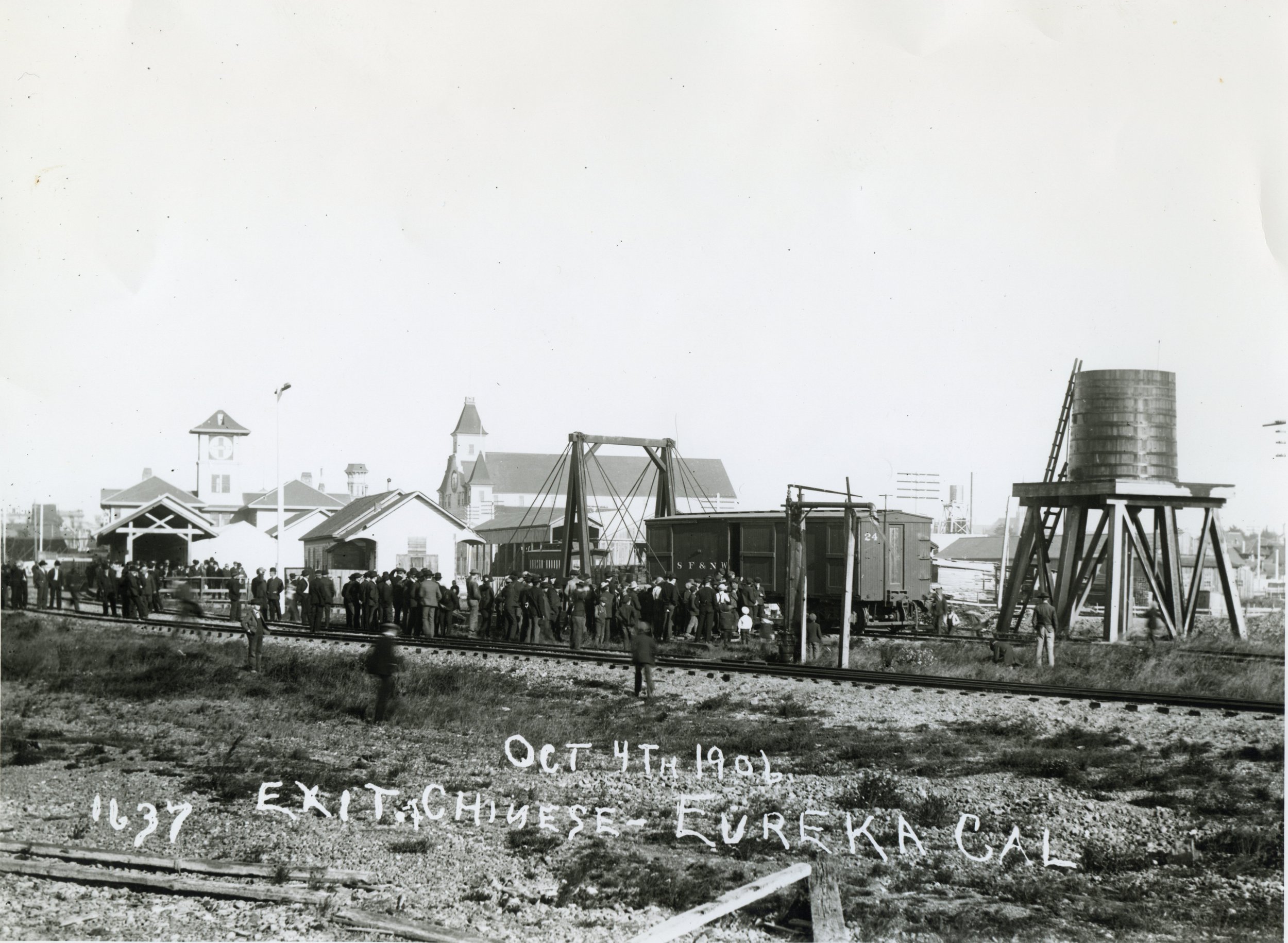Humboldt's Darker Past - The Chinese Expulsion
If it is honest, history records all aspects of a community’s past – the good, the bad and the ugly. Certainly one of the ugliest parts of Humboldt County’s past is its treatment of Asians.
It began with the California Gold Rush. The 49ers rushed here not just from eastern states but from around the world – including China. But the Chinese, being an easily identifiable competitor group, met a generally hostile reception. As well as other parts of the state, the Humboldt/Trinity gold fields attracted Chinese diggers, but hostility drove many back to the coast. Some then worked in the timber industry, in canneries and in building roads and railroads.
In Eureka, a Chinatown grew up on a swampy tract of land on 4th street between E and F. Over 200 people lived here, working as merchants, launderers, domestic servants or growing vegetables on small city plots. Antagonism to the Chinese grew even more in the early 1880s when rival tongs moved in bringing more brothels, gambling and opium dens – not to say that similar activities could not be found in non-Chinese Eureka.
Things came to a head on Friday night, Feb. 6, 1885. City Councilman, David Kendall, walking past Chinatown, was accidentally shot and killed in crossfire between two rival gangs. Within minutes, angry townspeople gathered on the street then into a nearby community hall demanding retaliation. Some 20 Chinese were thrown into the jail, which the sheriff then had to call out National Guard to protect.
Demands at the raucous community meeting including immediate lynchings and torching all of Chinatown. Calming speeches by clergymen from the Methodist and Congregational churches led to a less drastic proposal. All the Chinese were to be rounded up and shipped to San Francisco. Soon wagonloads of Chinese families with what possessions they could grab were taken to the docks and put aboard two steamers which had recently come into port.
Patrols scoured the county for other Chinese: some in Arcata’s smaller Chinatown, some living in segregated dorms in lumber camps, some working on ranches or in canneries. Only a few escaped the sweep, one being Charlie Moon, a cook on Charles Bair’s Redwood Creek ranch whose boss met the vigilantes with a rifle declaring no one was taking “his Chinaman”.
Over the next few decades, other Chinese and Japanese were prevented from living here, including workers in Eel River canneries and the Hartsook resort. In 1904, a newly opened Japanese gift and furniture shop was bombed in Eureka. In the early 20th century, publications by the Chamber of Commerce and other promotion groups proudly touted the fact that Humboldt County had “no Celestials.”
In 1930, the Japanese ambassador wanted to see our redwoods, but was met at the Humboldt border and prevented from disembarking. This was one of the many reasons the Japanese officially cited for their later declaring war on the US.
The 20th century moved on. The 1941 Eureka charter forbad the City from employing or contracting with Chinese, and there was unrest when Chinese-American students tried to enroll at Humboldt State. But things were changing. Unaware of Humboldt’s reputation, Ben Chin moved here from Oregon in 1954 and opened the county’s first Chinese restaurant. He received some harassment but more support. His family still serves satisfied customers today – as do many Asian-American owned restaurants and businesses. The county’s Asian-American population has grown and sister-city relationships flourish.
Although ending happily, this was not a happy chapter in Humboldt County’s history. But the responsibility of the Humboldt County Historical Society is to provide information and insight into our past – so that we can learn about it – and learn from it.

